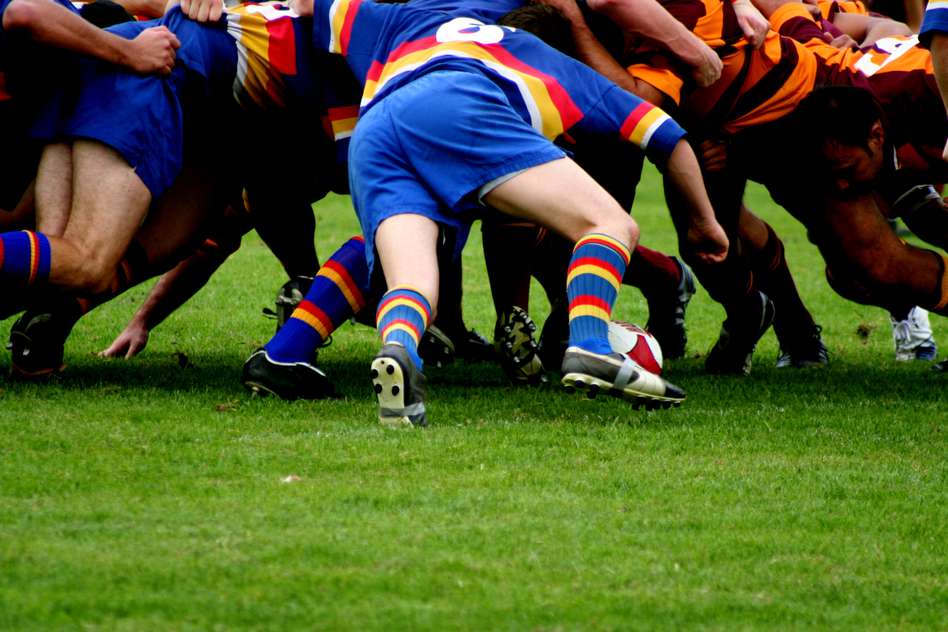Dispute Resolution (home life)
Doping in sport: advice for clubs and athletes on avoiding prohibited substances

When we think of doping allegations, we think of high-profile cases involving professional athletes on big salaries and lucrative sponsorship deals.
What most people don’t know is that doping sanctions can be imposed on athletes who compete for the love of the sport, for minimal or no financial reward. For many amateur or semi-pro athletes, defending an allegation of doping can have restrictive financial implications.
Not only that, roughly half of athletes who test positive for doping have done so without realising. This is more often than not, because they weren’t aware of what they should look out for - or how to mitigate the risk.
Jason Torrance is a sports litigation specialist with expertise in doping violation defences, having previously worked for UK Anti-Doping for over 5 years. Here Jason provides guidance to clubs on steps you can take to protect your players - or if you're an athlete, yourself - from inadvertently taking a banned substance. And if it does occur, how to go about ensuring you’ve secured the necessary evidence to help reduce any possible sanctions.
- What are the rules around prohibited substances?
- What measures can I take to prevent a positive test?
- Things you should avoid when taking supplements
What are the rules around prohibited substances?
Competing athletes have a responsibility to ensure that they do not ingest any prohibited substances as detailed in the World Anti-Doping Agency Prohibited List. The list is updated annually and lists substances that are banned for athletes.
Some substances are banned at all times, whilst others are banned only “in-competition”. However, whilst those substances that are only banned in-competition can be taken by athletes outside of competition windows, it is common for these substances to still be detected in samples taken many days after ingestion.
The first violation set out in the World Anti-Doping Code and the UK Anti-Doping Rules is stated as the ‘presence of a prohibited substance in a sample provided by an athlete’. This is a ‘strict liability’ offence, which means that if you return a positive test (through analysis of either a urine or a blood sample) then you are deemed to have committed an offence and could face a ban of up to four years.
What measures can clubs and athletes take to prevent a positive test?
Before taking a supplement, you should:
- Do your research. Boring, yes - but it doesn’t have to be overly time-consuming. In most instances, a simple Google search will reveal a lot of information about a particular supplement, and it is often the case that if that supplement is linked to an anti-doping offence, this will be highlighted in the results.
- Check Global DRO (Drug Reference Online) (https://www.globaldro.com/Home). This resource allows you to check medications online. It is simple and will quickly confirm whether medication has any banned substances in it. Whilst this is designed to be used for medication, and not supplements, if you are worried about a particular ingredient in a supplement, this can also be checked.
You should be aware that records of searches carried out are available to National Anti-Doping Organisations, for example UK Anti-Doping, so if an athlete says they carried out checks using Global DRO, this can be proven either way.
- Save your searches. If you do test positive, you will need to provide proof of the measures taken before using a supplement. The majority of athletes in this position will say that they conducted research, but very few are able to evidence this. To help with this aspect, keep a note of any searches conducted, including the time, date, the search terms used, the websites visited and the information obtained. A simple way to do this would be to take screen shots showing the time and date, of the pages visited.
- If you're an athlete, speak to your coach. If you are simply planning to use a supplement to assist your nutrition, or as a pre-workout supplement, speak to your coach. They are likely to have come across supplement use before and will be able to discuss the matter with you, both in terms of your need to use the supplement and whether the supplement you are planning to use is the best one for you.
- Keep receipts. When you do finally purchase a supplement, keep a receipt to evidence this purchase. If the purchase is made online, in most cases a confirmation email will be received, so save this in a separate folder.
- Tell someone. If you are using a supplement, tell someone else about it so you have someone who can corroborate your purchase and use of the supplement. This would ideally be, for example, a coach.
- Photograph the packaging. The likelihood is that you will use the supplement and when finished, throw away the packaging. It would be advisable, as well as keeping the receipts, to take pictures of all the packaging. The packaging will often be used against an athlete in proceedings if it contains warnings. You should always check the packaging and, if it does contain warnings, look into this further.
- Keep a record of the batch number of the supplement. In cases involving a potentially contaminated supplement, proving contamination can be very difficult, if not next to impossible. Keeping a note of the batch number of the supplement will really help. The manufacturers of the product should keep tests samples from all batches that can be analysed for contamination if need be.
- If tested, remember to list the supplement on the Doping Control Form. This may seem a minor point, and in reality a lot of athletes don’t do this, but adverse inferences may be drawn by a Panel if you do not list a supplement on a Doping Control Form to which you then attribute a positive test. If you have done the above checks and have no reason to hide using a supplement, listing it will help.
Things athletes should avoid when taking supplements:
- Taking a supplement from “a friend”. Many athletes have claimed to have been given a supplement by a friend without knowing what it is or what is in it. This is not a good look and, if a charge goes to the National Anti-Doping Panel, the Panel will likely not view this favourably.
- Relying on advice from unqualified individuals. You may have bought supplements in shops after speaking to someone working there and relying on their information, or from friends, or from people you know from the gym. In the vast majority of cases, these people have no qualifications whatsoever to help you make an informed decision. As a competing athlete, you are personally responsible for everything you ingest and will be held accountable in this way. The only time an athlete should consider placing reliance on someone else is if they are, for example, a trained medical professional advising on their area of expertise, or a club appointed official designated to deal with such issues.
Ultimately, every case will be considered on its own facts. Ideally, you or your player will not test positive. Following the above guidance will help to reduce the chance of doing so.
In circumstances where an athlete does test positive, if you - or they- have taken the above steps, this will go some way to assisting in the process of seeking to defend any charges and if charged, offer the best possible chance of minimising the length of any ban.
If you or an athlete in your club has received a notice of charge and needs help, call us.
Call our specialist solicitors on 0808 231 1320
Tees are here to help
We have many specialist lawyers who are based in:
Cambridgeshire: Cambridge
Essex: Brentwood, Chelmsford, and Saffron Walden
Hertfordshire: Bishop's Stortford and Royston
But we can help you wherever you are in England and Wales.
Chat to the Author, Jason Torrance
Senior Associate, Dispute Resolution and Litigation, Bishop's Stortford office
Meet Jason
- Areas of expertise
- Accreditations


